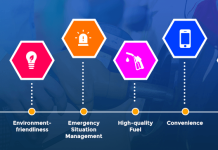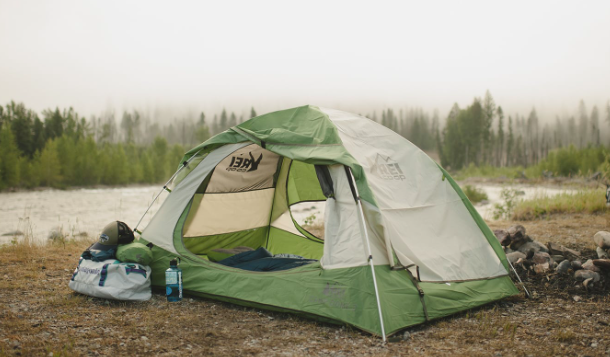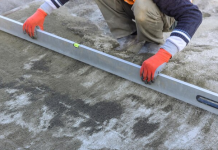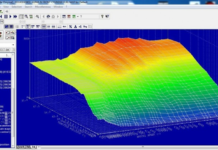Backpacking means you won’t be able to drive where you are going so you’ll need a sturdy but lightweight tent for those long hilly treks that might mean pitching your tent in the rain. Choosing the right one might seem like a difficult decision. However, you should keep in mind what activities will you be doing most of the time to better take care of your gear in the long run.
Features to Look for When Buying a Tent
When choosing a tent for backpacking, it is important to consider the following features:
-Capacity: The size of the tent should accommodate the number of people and their gear.
-Weight: The weight of the tent is important, as it will affect portability and overall packing size.
-Packed Size: Not all tents are bag and clip compatible, so be sure to factor this into your decision.
-Weather Resistance: A good tent should be able to withstand weather conditions such as rain and snow.
-Ease of Use: Make sure the tent is easy to set up and take down.
Who Stands Out in the Field of Backpacking?
Hiking and backpacking are popular activities for anyone looking to get outside and enjoy nature. However, before you head out into the woods, it’s important to take into consideration a few factors that can make your journey more comfortable and enjoyable.
The first thing you should consider when purchasing a tent is the size of you and your group. Each type of hiking requires different-sized tents, so be sure to consult trip instructions or a map before setting off.
Next, think about what type of camping you plan on doing. Many hikers pack their tents with them as they hike in order to sleep wild (meaning without shelter), while others prefer to set up camp every night in order to minimize their impact on the environment. If you opt for taking shelter each night, make sure your tent has an adequate rainfly in order to keep the elements off of you and your gear.
When choosing a tent for backpacking, there are a few additional things to keep in minds such as ventilation and weight capacity. Ventilation is important because if the humidity inside your tent builds up it can cause condensation on windows which can inhibit visibility and lead to frustrating issues during navigation; while weight capacity is important because if you’re trying to carry extra gear with you on your hike, making sure the tent can handle it is crucial.
Overall, these are just some basics that will help make your trip more comfortable both physically and mentally. Hopefully, this information will help you choose the right tent for your next backpacking trip!
Why Do You Need To Buy A Camping Tent?
Anyone who enjoys hiking and camping knows the importance of having a good camping tent. A well-made tent can make all the difference when spending hours outdoors, enjoying the natural environment, or just taking a break from civilization.
There are a few factors you should take into account when buying your camping tent.
Size: Consider how many people will be using the tent and how big they are. Some tents can accommodate up to eight people, while others are designed for two or three. Buying a bigger tent is optional but definitely recommended if you’re planning on sharing it with friends or family.
Feasibility: What kind of terrain is the tent intended for? Do you have any specific concerns such as wind or rain? A shelter made out of tarps and/or impermeable material like an Esporta sheds water quickly, making it perfect for wet environments like streams and rivers where other tents may struggle. Summertime rainfall can be torrential though so always consult local weather reports before making your purchase!
Weather resistance: Make sure your camping tent has high wind and precipitation resistance ratings to ensure it will keep you dry in bad weather conditions. Remember that even waterproof fabric eventually tears when subjected to strong wind gusts or heavy rain battering against its surface. In these situations, you should consider buying waterproof tents from nz that are strong to deal with difficult weather conditions.
Price tag: This is obviously one of the most important factors to consider when buying a camping tent. Be sure to assess what you need and what you’re willing to spend, as there are a variety of tents available in different price ranges. It’s also possible to find used tents for much lower prices than new ones.
Different Types of Tents
When buying a tent for backpacking, it is important to consider the type of camping you will be doing. For example, if you are camping in an open area with plenty of space to spread out, a three-person tent may be sufficient. However, if you are camping in a more cramped location or will be using the tent as your sole shelter from the weather, a four-person tent is recommended.
Other factors to consider when purchasing a backpacking tent include weight and price. While heavier tents can be more durable and offer greater comfort, they can also be more expensive. Try to find a balance between these two factors by reading reviews and comparing the weights and prices of different models.
Finally, consider your recreational activity when selecting a hiking or camping tent. If you will only use the tent for short trips during your vacation or for day trips from town, a smaller model may be adequate. If you plan on spending extended periods of time outdoors in any type of weather condition, however, opting for a larger model may be better suited for your needs.
Conclusion
Before buying a backpacking tent, it is important to consider all of your needs. This includes things like the type of terrain you will be hiking and camping in, the size of the tent, and whether or not you need an annex. Once you have narrowed down your choices, take some time to research individual tents and read reviews from other backpackers to get a good idea of what specific tent is perfect for you. Finally, don’t forget to factor in price when making your decision – different tents can be quite pricey but may provide greater value if used frequently.


























